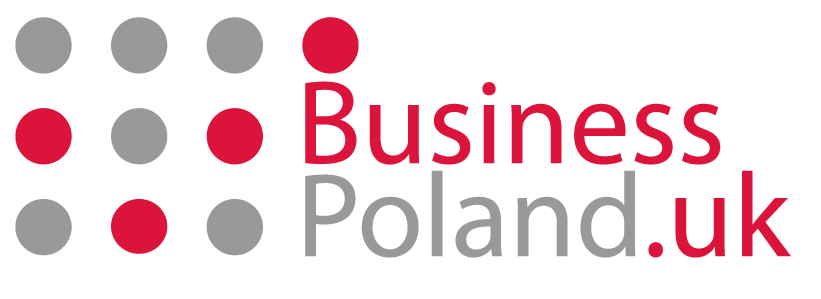In today’s world, the need for industry-specific vocabulary courses is growing. Poland’s diverse professional sectors highlight the importance of tailored language courses. These courses are key to improving communication and collaboration across industries.
Our aim is to fill the gaps in understanding that often block progress. By focusing on Poland vocabulary training, we can create programmes that meet the unique needs of each field. This ensures our workforce stays competitive globally.
Understanding the Need for Industry-Specific Vocabulary
In today’s world, clear communication in business is key to success. Every industry, like tech, finance, healthcare, or engineering, has its own special words. Knowing these words is vital for doing your job well.
Studies show that professionals often struggle with the right terms in their field. This can cause confusion, slow things down, and lead to mistakes. To solve this, we need to focus on learning the right words for each industry.
Benefits of Tailor-Made Vocabulary Courses
Bespoke language courses bring many benefits to professionals wanting to improve their vocabulary. They focus on content that matters to each learner. This makes it easier to remember and understand the language used in their field.
These courses make learning more engaging. People find the materials relevant to their work. This boosts their interest and motivation to learn.
Our bespoke courses help improve how well you can communicate at work. Many have seen their careers grow thanks to these programmes. Learners feel more confident when they can express themselves clearly in their field.
These courses are designed to fit into your career goals. This approach benefits both the individual and the company. It helps create a workforce that can handle today’s challenges.

Development of Industry-Specific Vocabulary Courses
Starting to make specialised courses means knowing the industries well. First, we identify the target industries. This involves looking at market needs and the language skills required in those areas. Our aim is to make courses that meet the needs of professionals in their fields.
Identifying Target Industries
We start by doing deep market research. This helps us find industries that need custom language training. We look at workforce needs, growth, and educational gaps. By using labour stats and industry reports, we find areas like tech, healthcare, and engineering.
This focused approach helps us create better courses. It makes learning more engaging and successful for students.
Assessing Language Needs of Professionals
After picking the industries, we assess language needs. It’s key to know what language skills professionals need. We use surveys, interviews, and work with experts to get the right data.
This data helps us make sure our courses cover the right language and vocabulary. It’s all about helping professionals communicate well in their jobs.
| Industry | Professional Roles | Language Skills Required | Assessment Method |
|---|---|---|---|
| Technology | Software Developers | Technical jargon, coding language | Surveys |
| Healthcare | Nurses, Doctors | Medical terminology, patient communication | Interviews |
| Engineering | Project Managers | Technical specifications, project coordination | Expert collaboration |
Our method of making specialised courses and checking language needs keeps our programme up-to-date. By focusing on the skills needed by professionals, we make our vocabulary courses more impactful.
Designing Effective Course Content
Creating effective course design is all about strategy. It’s about making sure the content meets the needs of learners. By focusing on real-world language use, we make sure our courses are relevant to specific industries. Practical scenarios help learners link theory to their everyday work, making learning more fun and useful.
Incorporating Real-World Scenarios
Using real-world scenarios in course content makes learning stick. Learners get to see examples that match their job challenges. This way, they understand better and feel more confident as they practice their language skills.
Leveraging Industry Terminology
Using industry terms is key to making learners proficient in their field’s language. By including specific vocabulary in the course, learners can use it correctly. This boosts their ability to communicate well and deepens their industry knowledge.

Engaging Professional Instructors
Qualified language instructors play a key role in creating successful vocabulary courses. They need to be skilled in the language and have industry knowledge. This knowledge helps them teach in a way that tackles real-world challenges.
Using the right teaching methods makes learning fun and effective. We can use interactive techniques to keep students engaged. Role-playing helps learners practice conversations and vocabulary in real-life scenarios.
Practical applications also play a big part. They help students see how theory works in real life. This ensures they understand and use important terms in their jobs.
Utilising Technology in Course Delivery
Technology is key in making our vocabulary courses better. It helps us use e-learning platforms to make learning more flexible and easy to access. These platforms have lots of resources for both teachers and students, making learning fun and interactive.
Our online courses use cool tools like mobile apps, virtual simulations, and quizzes. These tools help different learning styles, so everyone finds something they like. With mobile apps, students can learn anytime, anywhere, turning downtime into learning time.

Virtual simulations give real-life scenarios, which are great for industry-focused learning. They let learners practice their vocabulary in real situations. This makes learning more relevant and prepares students for their future jobs.
By using the latest technology, we improve our vocabulary courses a lot. This mix of old and new learning methods helps our students get the skills they need for their careers.
Strategies for Marketing Vocabulary Courses
To reach learners and industry experts, we need solid marketing plans. We should connect with professional networks and industry groups. These connections are key to promoting our courses well.
Targeting Industry Networks
Joining industry networks helps us reach more people. Working with trade groups boosts our reputation. Being active at events and conferences builds trust and gets us more referrals.
Utilising Social Media Platforms
Using social media smartly makes us more visible. Sites like LinkedIn and Twitter are great for sharing course info. We can also run ads and host live sessions to draw in people.
Measuring Course Effectiveness
It’s important to know if our vocabulary courses are working well. We check how well they meet the needs of our learners. We look at things like how many finish the course, what they think of it, and how well they do in tests.
Setting clear goals helps us improve our courses. We can see how well we’re doing and what needs work. Things like how long students spend on the course and their test scores tell us a lot.
Getting feedback from students is key. It helps us learn what we’re doing right and what we can do better. We use surveys, group talks, and regular updates to hear from our learners.
| Performance Metric | Description | Importance |
|---|---|---|
| Completion Rates | Percentage of learners finishing the course | Indicates course engagement and relevance |
| Participant Feedback | Surveys assessing learner satisfaction and course content | Helps identify strengths and weaknesses |
| Competency Assessments | Evaluates knowledge and skills acquired | Shows effectiveness in achieving learning objectives |
Continuous Improvement and Feedback Loops
In the world of vocabulary courses, always getting better is key. Using strategies for course improvement is vital. It helps us stay up-to-date in fast-changing industries.
By listening to learner feedback, we can make our courses better. This way, we meet the changing needs of professionals.
Having feedback loops helps us grow continuously. We can see where we need to improve and what learners like. Surveys and focus groups give us valuable insights.
By talking openly with learners, we make feedback important. This creates a team effort in improving courses. It leads to better learning experiences and outcomes.
Partnership Opportunities in Poland
We see great chances in teaming up with Polish businesses for our vocabulary courses. Working with them lets us understand the language needs of different sectors better. This makes our courses more relevant and useful.
Partnerships with local universities and training centres are key for our curriculum. They know the education scene and what languages are needed in their fields. By working together, we can share knowledge and improve learning.
Also, teaming up with big companies offers real-world training chances. Learning industry terms in action is vital. These partnerships help create courses that prepare learners for the job market.
To show how partnerships work, here’s a table with examples:
| Partner Type | Example | Benefits |
|---|---|---|
| Business Collaboration | Tech Company A | Access to industry-specific language training and internships. |
| Educational Partnership | University B | Co-created curriculum that meets academic and practical needs. |
| Industry Alliance | Manufacturing Group C | Workshops and seminars to enhance vocabulary and technical competence. |
These examples show the good results of partnerships. By working with Polish businesses, we can offer language training that meets both learner and industry needs.

Community Building and Networking for Learners
Creating a vibrant community for learners is key. It helps build connections and opens up networking chances. By supporting each other, learners can share their experiences and grow together in language skills.
To boost community spirit, we can start workshops. Here, learners work on projects together, building friendships. Discussion forums also help, allowing for ongoing talks. People can ask questions, share tips, and learn from others.
Peer mentorship is another great idea. It pairs experienced learners with newcomers. This support not only helps with language but also boosts confidence as they face challenges together.
These interactions make learning more than just about language. They add a social layer to professional growth. These connections can also lead to valuable networking opportunities in different fields.
Future Trends in Vocabulary Education
Looking ahead, vocabulary education is set to change a lot. New trends are making language training more focused on specific industries. Adaptive learning technologies are at the forefront, changing how we learn vocabulary.
These technologies make learning personal. Students can learn at their own speed and focus on what’s important for their jobs. This is key as jobs keep changing and we need to adapt fast.
There’s also a growing importance on soft skills alongside technical vocabulary. Future learning will focus on both grammar and communication skills. This way, learners get ready for real-world challenges.
In short, keeping up with these trends is vital for teachers and course makers. By using new tech and teaching methods, we keep our courses relevant. We help students get ready for the changing job world by teaching them to adapt, engage, and have a wide range of skills.







